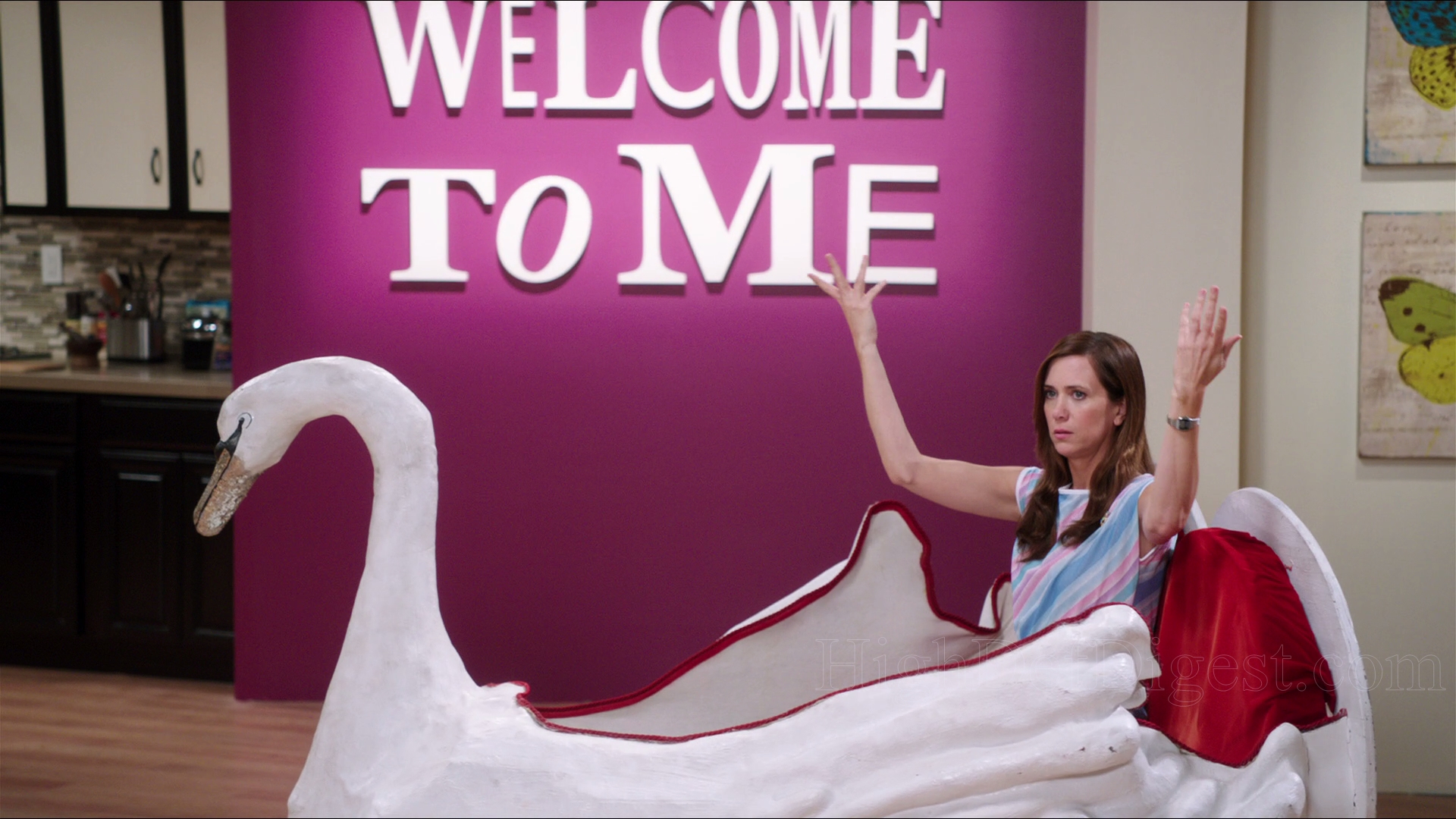There were multiple times throughout “Welcome to Me” where I saw a glimmer of potential. It’s a film about Alice (Kristen Wiig), a woman with borderline personality disorder, and due to stigmatization, accurate portrayals of mental illness (especially for women) are few and far between in Hollywood. These are stories that should be told, not just as melodrama, not just as horror, not just as comedy, but as all of those genres and more. So the attempted comedy-drama blending of the movie is admirable in its intentions.
The idea could be great if it was executed by a great screenwriter and a great director with a unified, purposeful vision. The movie is going for a kind of tragicomic vibe that allows the audience to laugh at Alice while still leaving room to take her illness and her challenges seriously. I can think of multiple movies that have done this pretty well: “Silver Linings Playbook,” “The Skeleton Twins,” “Frank,” “Lars and the Real Girl,” hell, even “American Psycho.” I’m sure all of those have gotten flack for simplifying mental illness and for fitting it into a neat Hollywood-friendly bundle, and I’m sure some people would even say that “Welcome to Me” is a more daring movie than those because it’s willing to be weird as hell, to go to dark and unexpected places.
So yes, I commend director Shira Piven and writer Eliot Laurence’s willingness to just take risks and be weird. That said, for a comedy to work about mental illness, it has to be funny. This is where I’ll probably differ with lots of people who have seen the movie, because humor is subjective, but I wasn’t laughing much while watching. I did giggle a little at the sheer outrageousness of some parts, like when I realized that Alice was legitimately going to neuter dogs during her talk show. Unfortunately, though, most of Alice’s characterization makes her seem just like one of Kristen Wiig’s SNL characters with weird quirks. I admittedly don’t know much about BPD, but I kind of doubt it’s like this, and besides, most of these quirks aren’t as funny as Wiig’s usual quirks.
Back to my original point, though: “Welcome to Me” really struggles to figure out this strange tone. We’re supposed to gently laugh at Alice despite deeply caring for her, but many of the scenes seem to beg us just to tease her. How much of the movie is supposed to be genuine and how much ironic? For example, are we supposed to be deeply invested in her romance with Gabe (Wes Bentley)? Is her having sex with Gabe supposed to be sweet, or is it some sort of joke? Is the romance in general genuine, or a punchline? The movie tries to have it both ways, and I think people who like it would simply say “it is what it is.” We can laugh at it while still being invested in it. My answer to that is the same as the question of the film’s sense of humor in general, though: we can’t have it both ways, because the romance works as neither a funny punchline nor a heartfelt emotional connection. For me, anyway.
I saw another big glimmer of potential during the climax, when Alice’s family and best friend Gina (Linda Cardellini) show up for the final broadcast of her show. I can imagine a movie where this was a genuinely touching ending, especially because I was wrapped up in the sheer lunacy of it all, with all the characters gathered at the final live taping of this weird sensory assault of a talk show. But the emotional crux of the climax involves Alice apologizing to Gina for ignoring her when she really needed it, for being so selfish and worrying about her own problems and her own show.
Tell me, Eliot Laurence and Shira Piven, WHY WASN’T THIS THE MAIN ARC OF THE STORY? This movie could’ve been so good if it explored the potential for selfishness on the part of victims of mental illness—obviously Alice’s egotism is a result of her disorder and Gina should cut her some more slack than she would most friends, but Gina’s still right to be angry at Alice, and if this had been emphasized throughout the movie, it could’ve had such a powerful impact. In fact, this movie could’ve been fascinating if it focused on Gina instead, following her as she struggles with life and can’t reach out to her own best friend because her best friend is obsessed with her newfound wealth and trying to use it to fix herself. One of the opening scenes, with Gina telling someone on the phone that Alice needs her, even raises this possibility. But no, the wonderful Linda Cardellini is in only a few scenes, and her character (and friendship with Alice) is woefully underdeveloped as a result.
“Welcome to Me” is a movie that I admire for what it’s trying to do. But what “Frank” has that this movie doesn’t have is 1. a lot of good jokes, 2. a genuinely moving conclusion, 3. a serious critique of society’s perceptions of mental illness, and, generally, 4. a lot better writing. It’s interesting to see these filmmakers grapple with these ideas and try to produce something strange and new, but I’m more intrigued to see what Piven and Laurence do next.




Leave a Reply
Be the First to Comment!